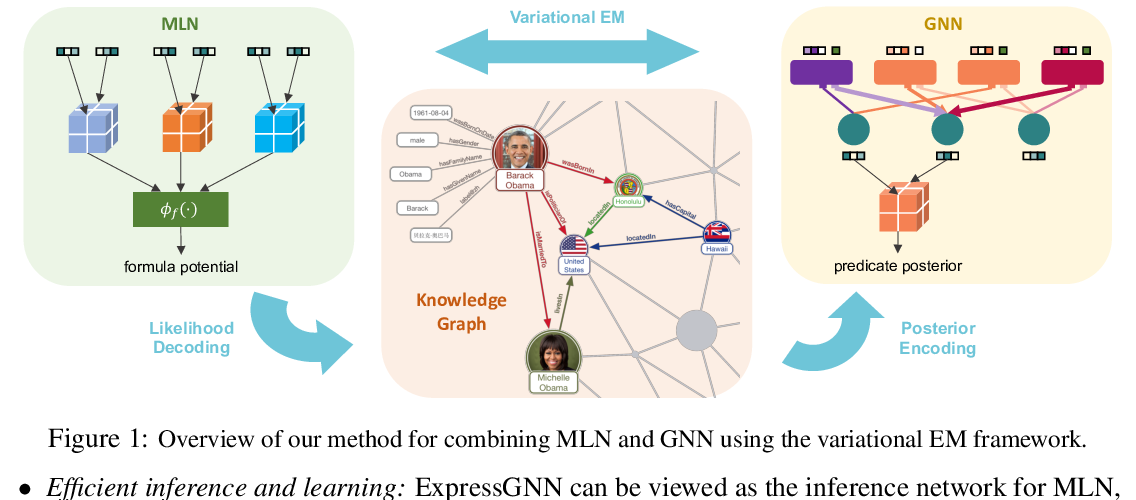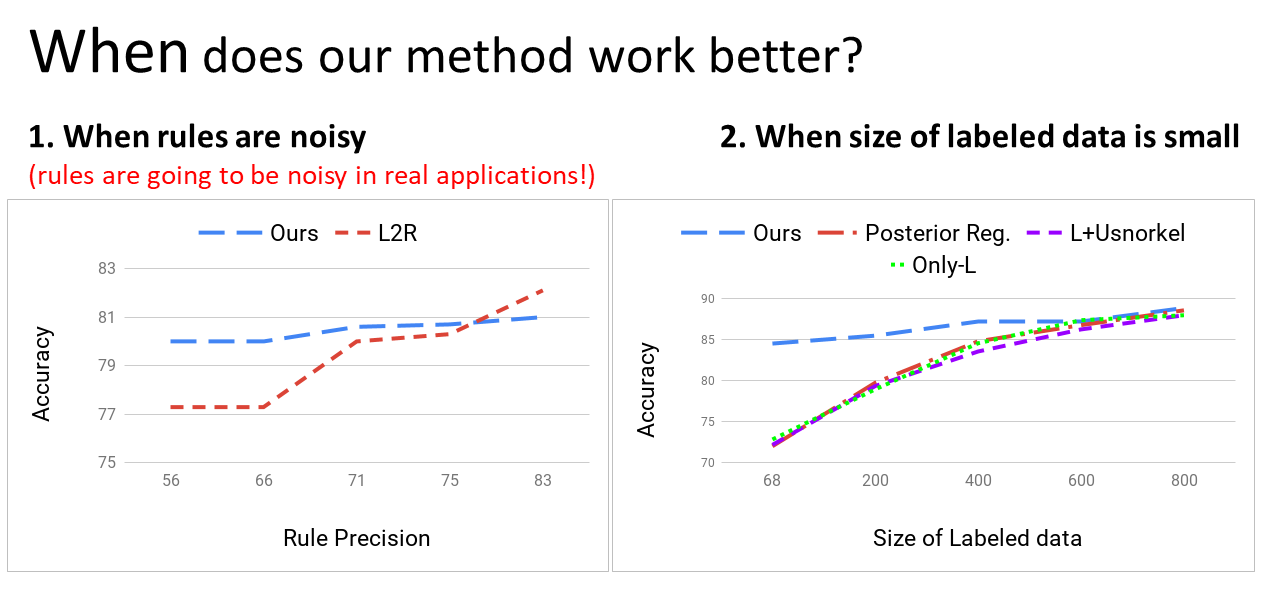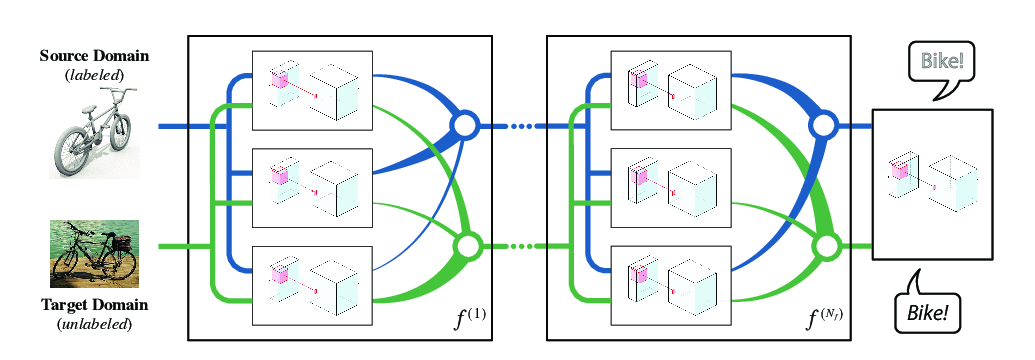Abstract:
Rules over a knowledge graph (KG) capture interpretable patterns in data and can be used for KG cleaning and completion. Inspired by the TensorLog differentiable logic framework, which compiles rule inference into a sequence of differentiable operations, recently a method called Neural LP has been proposed for learning the parameters as well as the structure of rules. However, it is limited with respect to the treatment of numerical features like age, weight or scientific measurements. We address this limitation by extending Neural LP to learn rules with numerical values, e.g., ”People younger than 18 typically live with their parents“. We demonstrate how dynamic programming and cumulative sum operations can be exploited to ensure efficiency of such extension. Our novel approach allows us to extract more expressive rules with aggregates, which are of higher quality and yield more accurate predictions compared to rules learned by the state-of-the-art methods, as shown by our experiments on synthetic and real-world datasets.


